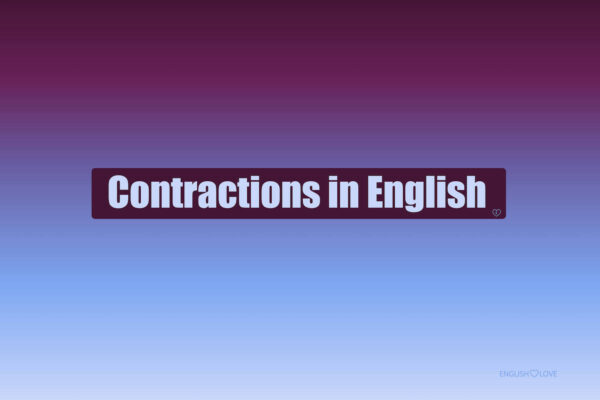English grammar is vast, and one of its most essential components is verb tenses. These tenses help convey when an action took place, be it in the past, present, or future. Let’s delve into the intricacies of verb tenses and understand their significance.
What are verb tenses?
Verb tenses denote the time of an action or event. For instance, “walked” is the simple past tense of “walk,” while “walks” signifies the present. They can also express the action’s duration or frequency, like “I have been walking for an hour” or “I walk every day.”
Types of Verb Tenses
- Simple Verb Tenses: These are the fundamental tenses and consist of a single word, such as “go,” “went,” or “will go.” They describe actions in the present, past, or future.
- Progressive Verb Tenses: These tenses depict ongoing or incomplete actions. They combine the verb’s present participle (the “-ing” form) with a form of “to be” (e.g., am, is, are, was, were).
- Perfect Verb Tenses: Perfect tenses express actions completed in the past. They merge the verb’s past participle (the “-ed” form) with a form of “to have” (e.g., have, has, had).
- Perfect Progressive Verb Tenses: These tenses describe actions that have been ongoing in the past, present, or future. They combine the past participle with forms of both “to have” and “to be.”
Examples of Verb Tenses
- Present Simple: “She reads a book every evening.”
- Past Simple: “They traveled to Spain last summer.”
- Future Simple: “He will join the conference tomorrow.”
- Present Progressive: “The children are playing in the garden.”
- Past Progressive: “She was listening to music when the phone rang.”
- Future Progressive: “They will be flying to Paris during the holidays.”
- Present Perfect: “I have completed my assignment.”
- Past Perfect: “He had left the party before she arrived.”
- Future Perfect: “By next year, she will have graduated from college.”
- Present Perfect Progressive: “They have been working on the project for three months.”
- Past Perfect Progressive: “I had been reading for two hours before I took a break.”
- Future Perfect Progressive: “By evening, we will have been hiking for five hours.”
English Verb Tenses Chart:
| Tense | Past | Present | Future |
|---|---|---|---|
| Simple | She wrote a letter. | She writes every day. | She will write a book. |
| Progressive | She was writing when the bell rang. | She is writing a novel now. | She will be writing all afternoon. |
| Perfect | She had written a letter before she left. | She has written three novels. | She will have written ten books by 2030. |
| Perfect Progressive | She had been writing for hours when he arrived. | She has been writing for two hours. | She will have been writing for three hours by the time we arrive. |
Understanding Verb Tenses and Their Formulas
Verb tenses in English are crucial for conveying the timing of actions. Each tense has a specific structure or formula that dictates how it should be used in sentences. By understanding these formulas, learners can accurately express when an action or event occurred. The table below provides a clear breakdown of the primary English verb tenses and their respective formulas, using the verb “write” as an illustrative example.
| Verb Tense | Formula | Example |
|---|---|---|
| Simple Tenses | ||
| Past Simple | Subject + V2 | She wrote a letter. |
| Present Simple | Subject + V1 | She writes every day. |
| Future Simple | Subject + will + V1 | She will write a book. |
| Progressive Tenses | ||
| Past Progressive | Subject + was/were + V1 + ing | She was writing when the bell rang. |
| Present Progressive | Subject + is/am/are + V1 + ing | She is writing a novel now. |
| Future Progressive | Subject + will be + V1 + ing | She will be writing all afternoon. |
| Perfect Tenses | ||
| Past Perfect | Subject + had + V3 | She had written before she left. |
| Present Perfect | Subject + has/have + V3 | She has written three novels. |
| Future Perfect | Subject + will have + V3 | She will have written ten books by 2030. |
| Perfect Progressive Tenses | ||
| Past Perfect Progressive | Subject + had been + V1 + ing | She had been writing when he arrived. |
| Present Perfect Progressive | Subject + has/have been + V1 + ing | She has been writing for two hours. |
| Future Perfect Progressive | Subject + will have been + V1 + ing | She will have been writing for three hours by the time we arrive. |
Mastering the Art of English Verb Tenses
Verb tenses form the backbone of English grammar, allowing us to convey when actions or events occur. However, understanding and using them correctly can be a challenge for many learners. To make this journey smoother, we’ve compiled a checklist that offers a structured approach to mastering verb tenses. By following these steps, you can enhance your grasp over different tenses and use them confidently in your communications.
Checklist for Learning Verb Tenses
- Consistent Practice: Dedicate time daily or weekly to practice constructing sentences using each tense.
- Flashcards Creation: Make flashcards with the name of the tense on one side and its formula on the other for quick revision.
- Real-life Application: Incorporate the tenses you learn into your daily conversations or writings.
- Maintain a Verb List: Keep a list of irregular verbs and their different forms for easy reference.
- Story Creation: Craft a short story using all the tenses to test your understanding and improve narrative skills.
- Error Analysis: After writing, review and correct any tense-related errors to learn from your mistakes.
- Engage in Listening Activities: Listen to native speakers through podcasts, movies, or conversations to understand practical tense usage.
- Seek Feedback: Share your writings with peers or teachers to get feedback on your tense usage.
By diligently following this checklist, learners can systematically approach the process of mastering English verb tenses and enhance their language skills.
In Conclusion
Verb tenses are pivotal in the English language, enabling us to express time and change. By understanding and practicing them, one can enhance their command over the language and communicate more effectively.
FAQs for Understanding Verb Tenses
What are the primary categories of English verb tenses?
The main categories of English verb tenses are Simple, Progressive (or Continuous), Perfect, and Perfect Progressive.
How many basic tenses does English have?
English has three basic tenses: Past, Present, and Future.
Why is it important to understand verb tenses in English?
Understanding verb tenses is crucial because they help convey the timing of actions, events, or states, ensuring clear and effective communication.
Can I use multiple tenses in one sentence?
Yes, it’s common to use multiple tenses in complex sentences, especially when indicating a sequence of events or providing additional context. For example, “While she was writing the book, she has gained a lot of insights.”




